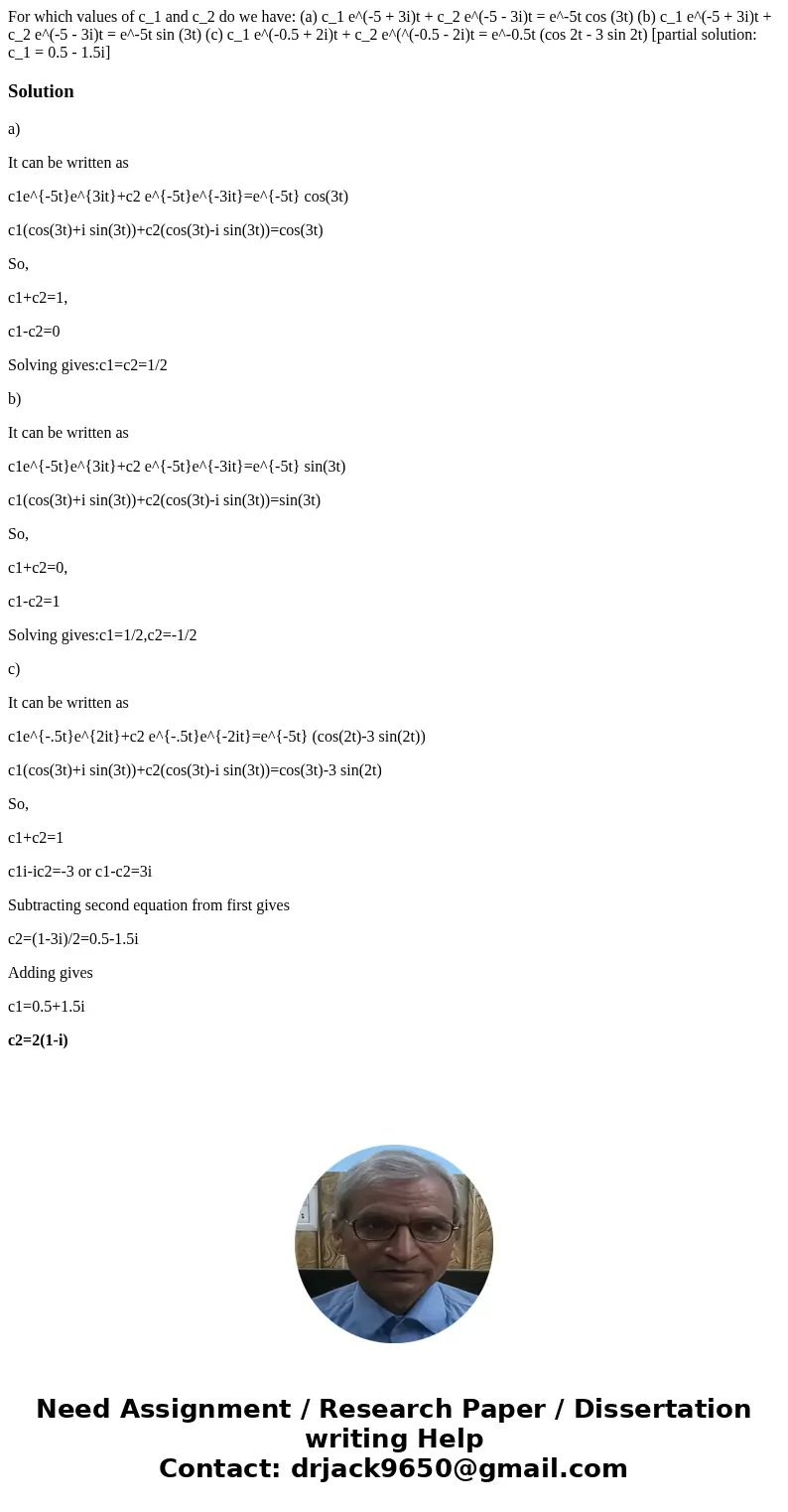For which values of c1 and c2 do we have a c1 e5 3it c2 e5
For which values of c_1 and c_2 do we have: (a) c_1 e^(-5 + 3i)t + c_2 e^(-5 - 3i)t = e^-5t cos (3t) (b) c_1 e^(-5 + 3i)t + c_2 e^(-5 - 3i)t = e^-5t sin (3t) (c) c_1 e^(-0.5 + 2i)t + c_2 e^(^(-0.5 - 2i)t = e^-0.5t (cos 2t - 3 sin 2t) [partial solution: c_1 = 0.5 - 1.5i]
Solution
a)
It can be written as
c1e^{-5t}e^{3it}+c2 e^{-5t}e^{-3it}=e^{-5t} cos(3t)
c1(cos(3t)+i sin(3t))+c2(cos(3t)-i sin(3t))=cos(3t)
So,
c1+c2=1,
c1-c2=0
Solving gives:c1=c2=1/2
b)
It can be written as
c1e^{-5t}e^{3it}+c2 e^{-5t}e^{-3it}=e^{-5t} sin(3t)
c1(cos(3t)+i sin(3t))+c2(cos(3t)-i sin(3t))=sin(3t)
So,
c1+c2=0,
c1-c2=1
Solving gives:c1=1/2,c2=-1/2
c)
It can be written as
c1e^{-.5t}e^{2it}+c2 e^{-.5t}e^{-2it}=e^{-5t} (cos(2t)-3 sin(2t))
c1(cos(3t)+i sin(3t))+c2(cos(3t)-i sin(3t))=cos(3t)-3 sin(2t)
So,
c1+c2=1
c1i-ic2=-3 or c1-c2=3i
Subtracting second equation from first gives
c2=(1-3i)/2=0.5-1.5i
Adding gives
c1=0.5+1.5i
c2=2(1-i)

 Homework Sourse
Homework Sourse